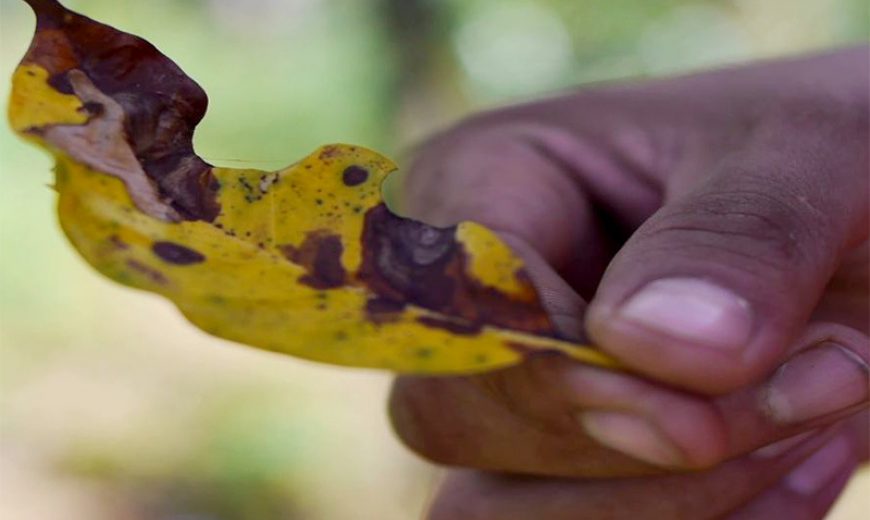17 Nov 2017
Coffee to go?
La roya. Leaf rust. Words which strike fear into the hearts of tens of thousands of coffee growers around the world.

Image © Fairtrade International
“I lost my coffee plants because of leaf rust. Those plants were my only source of income each year,” says Benito Caso, a coffee farmer from Sonomoro in Peru. “These plants and this farm are my life’s work, but now la roya has taken everything away from me.”
Coffee farmers in Latin America have experienced the worst outbreak of leaf rust disease since the 1970s, resulting in major losses. The fungus causes the leaves of the coffee trees to drop, which in turn means the coffee fruit doesn’t mature and the harvest is lost. It’s estimated that more than half the coffee growing region of Central America has been affected.
Leaf rust isn’t caused by climate change, but warmer, wetter conditions are ideal for spreading the disease, and Fairtrade farmers are suffering along with the rest. “It’s raining too much here,” says Magda Reza, a member of the Sonomoro coffee cooperative. “The climate is changing. Coffee yields are lower than they used to be.”
But Magda, along with other Fairtrade farmers around the world, is fighting back. “The best way to adapt is to diversify,” she says. “I’m also growing bananas, cassava and cocoa. That way I can spread the risk and be more prepared.”
More than 3,000 kilometres north, in Guatemala, Fairtrade coffee farmers from the organic Chajulense Coffee Growers Association are also investing some of their Premium – that’s the extra money they get from selling on Fairtrade terms – in adapting to the impacts of climate change. They’re also diversifying into cardamom and honey production.
“We’re trying different materials and tools and using organic fertilisers,” says Miguel Soy, the association’s director. “We’re trying different types of seeds and plants which are resistant to la roya. We’ve planted different demonstration crops so we can see what works best…. We’ve also used some of the money to install solar-powered driers which are better for the climate and better for the coffee beans.”
A day’s drive northwest of Guatemala City, the 150 hectare Maya Ixil Fairtrade coffee cooperative lies surrounded by lush tropical rainforest, waterfalls and rivers. But even here, climate change is having an impact. Technical Director Diego Garcia Mendoza shows visitors around the plantations. “We’re keen to preserve as much biodiversity as we can,” says Diego. “The coffee plants and seedlings you see here are the product of breeding to be resistant to la roya. We’re developing new plantations which are entirely resistant to leaf rust.”